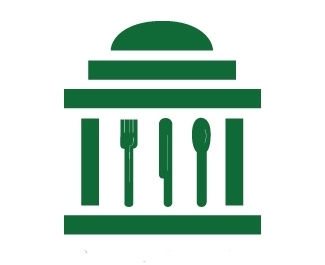As a high school student, Rabbi Michelle Fisher SM ’97 decided to attend Princeton University over MIT. The decisive factor was not academics or location — it was food.
“I knew there was a full kosher meal plan at Princeton, and that was going to be something important to me,” says Fisher.
But when the new House Dining system opens in fall 2011, kosher dinner will be available in all the dining halls for the first time. “I am so excited,” says Fisher, who is now the executive director of MIT Hillel. “There are big changes coming, all for the better.”
Jewish students on campus echo Fisher’s enthusiasm. “This has been the number one topic of conversation since we heard about it,” says sophomore Yael Schein, a member of the Hillel Student Board. “We are definitely very excited about this.”
In the new House Dining program, meals will be prepared in the kosher-certified meat kitchen in the Religious Activities Center (W11) next to Kresge Chapel and available to all patrons for lunch and dinner at a dedicated kosher station in the new dining facility in Maseeh Hall. Residents of McCormick Hall, Baker House, Next House and Simmons Hall may order kosher meals one day in advance to be delivered to their dining halls for dinner the next night.
“I think it’s a great opportunity for the Hillel community. Not only can we eat the food that fulfills our dietary restrictions, but we can do it in dining halls with our friends,” says Schein. “It creates a sense of community within Hillel as well as broadening the community throughout the campus.”
Fisher estimates that there are approximately 400 Jewish undergraduates, although their adherence to kosher practices varies. Right now, Hillel caters kosher meals in the Religious Activities Center on Monday and Wednesday for around 20 students per night, and offers a Friday night Sabbath dinner that attracts between 50 and 80 students each week. The Sabbath dinner will continue; kosher meals will not be served at Maseeh and the other residences on Friday evening as part of the new plan.
Currently the only kosher dining option in the residence halls is to cook for yourself in one of three kosher-only suites in Burton-Connor. Both Schein and Fisher said it’s very difficult for students who keep kosher to eat on the go at MIT. “It’s inconvenient. These dining halls will make my life easier,” says Schein.
Richard Berlin, director of Campus Dining, said that the new kosher servery at Maseeh is a benefit to the entire campus. “It will be an option that is available to any student regardless of whether they are practicing kosher. If you like what’s on the kosher menu that night, you can eat that meal whoever you are,” he says. “We’re adding to the breadth of what we can offer to the entire community.”
And Fisher says this breadth reflects a welcoming environment that may attract students like her, who in the past have passed on MIT. “We do know that there are a number of students that wind up going to Harvard, going to Princeton, going to Columbia, because there wasn’t an option here that made it easy for them to keep kosher,” she says. “And whether the students keep kosher or not, it's a symbol of the strength of Jewish life and Jewish community when you have a kosher meal plan on campus.”
“I knew there was a full kosher meal plan at Princeton, and that was going to be something important to me,” says Fisher.
But when the new House Dining system opens in fall 2011, kosher dinner will be available in all the dining halls for the first time. “I am so excited,” says Fisher, who is now the executive director of MIT Hillel. “There are big changes coming, all for the better.”
Jewish students on campus echo Fisher’s enthusiasm. “This has been the number one topic of conversation since we heard about it,” says sophomore Yael Schein, a member of the Hillel Student Board. “We are definitely very excited about this.”
In the new House Dining program, meals will be prepared in the kosher-certified meat kitchen in the Religious Activities Center (W11) next to Kresge Chapel and available to all patrons for lunch and dinner at a dedicated kosher station in the new dining facility in Maseeh Hall. Residents of McCormick Hall, Baker House, Next House and Simmons Hall may order kosher meals one day in advance to be delivered to their dining halls for dinner the next night.
“I think it’s a great opportunity for the Hillel community. Not only can we eat the food that fulfills our dietary restrictions, but we can do it in dining halls with our friends,” says Schein. “It creates a sense of community within Hillel as well as broadening the community throughout the campus.”
Fisher estimates that there are approximately 400 Jewish undergraduates, although their adherence to kosher practices varies. Right now, Hillel caters kosher meals in the Religious Activities Center on Monday and Wednesday for around 20 students per night, and offers a Friday night Sabbath dinner that attracts between 50 and 80 students each week. The Sabbath dinner will continue; kosher meals will not be served at Maseeh and the other residences on Friday evening as part of the new plan.
Currently the only kosher dining option in the residence halls is to cook for yourself in one of three kosher-only suites in Burton-Connor. Both Schein and Fisher said it’s very difficult for students who keep kosher to eat on the go at MIT. “It’s inconvenient. These dining halls will make my life easier,” says Schein.
Richard Berlin, director of Campus Dining, said that the new kosher servery at Maseeh is a benefit to the entire campus. “It will be an option that is available to any student regardless of whether they are practicing kosher. If you like what’s on the kosher menu that night, you can eat that meal whoever you are,” he says. “We’re adding to the breadth of what we can offer to the entire community.”
And Fisher says this breadth reflects a welcoming environment that may attract students like her, who in the past have passed on MIT. “We do know that there are a number of students that wind up going to Harvard, going to Princeton, going to Columbia, because there wasn’t an option here that made it easy for them to keep kosher,” she says. “And whether the students keep kosher or not, it's a symbol of the strength of Jewish life and Jewish community when you have a kosher meal plan on campus.”






